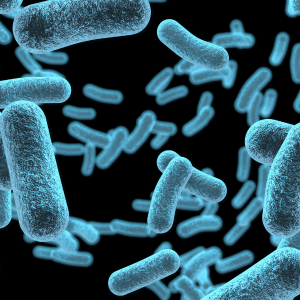Antibiotic Resistance to Bacteria
Is There a Crisis Coming?
By John L. Tate, D.D.S.
The concern about antibiotic resistance to bacteria is real. Learn what bacteria tend to be resistant and how Beta 1 3D Glucan may offer your immune system some support.
"Common bacteria that cause pneumonia, children's ear infections and many other diseases are evolving into forms untreatable by all known medicines, threatening a chilling post-antibiotic era that would be "nothing short of a medical disaster," stated Dr. Alexander Tomasz of Rockefeller University in New York City.
"It's potentially an extremely serious problem," said Dr. Mitchell Cohen of the Centers for Disease Control (CDC) of Atlanta, Georgia. "Any new drugs that might be developed to cope with the deadly bacteria are at least five to seven years away, and drug companies are not pursuing them eagerly", Cohen said.
"Spread has occurred quickly with the untreatable form of enterococcus, too. In one New York hospital, the untreatable strain wasn't present in 1989. By 1992, it was responsible for 58% of the infections with that species of enterococcus. If you get the infection you are in the Almighty's hands," said Dr. Tomasz.
Staph Resistant Bacteria
A staph germ that has resisted medicine's drug of last resort has shown up for the first time in the United States, the government said Thursday (August 21, 1997). "The timer is going off," said Dr. William Jarvis, a medical epidemiologist with the Centers for Disease control and Prevention. "We were concerned it would emerge here, it has emerged here and we are concerned we're going to see it popping up in more places."
Staph bacteria are the #1 cause of hospital infections. They are blamed for about 13% of the Nation's 2 million hospital infections each year, according to the CDC. Overall, the 2 million infections kill 60,000 - 80,000 people.
From Harvard Medical School, authors A. O. Tzianabos and R. L. Cisneros write in the October 25, 1996, Annual New York Academy of Sciences publication, "The emergence of multiple antibiotic-resistant microorganisms has led to a search for alternatives to traditional therapeutic regimens. PGG Glucan is a soluble beta-glucan immuno modulator that selectively enhances the microbicidal activities of neutrophils, and microphages without stimulating pro-inflammatory cytokine production…these studies demonstrated that prophylaxis with PGG glucan in combination with antibiotics provided enhanced protection against lethal challenge with Esherichia coli or Staphylococcus aureus as compared with the use of antibiotics alone."
Is Beta 1 3D Glucan (Beta Glucan) a Substitute for Antibiotic Resistance to Bacteria

One of the best kept secrets in medicine is Beta-1, 3-D glucan. Beta glucan is a non-specific immune modulator with over 1,600 peer-reviewed articles and 25 years of research. It safely and effectively activates and modulates the immune system through its cellular network of macrophages, neutrophils, B-Cells and Killer cells to control bacteria, fungi viruses and tumor cells. A typical quote from one of these articles is, "The broad spectrum of immuno pharmocological activities of Glucan includes not only the modification of certain bacterial, fungal, viral and parasitic infections, but also inhibition of tumor growth." Nicholas DiLuzio, Ph.D., Department of Physiology, Tulane University School of Medicine.
About Beta 1 3D Glucan
What is Beta 1 3D glucan? It is a long chain polysaccharide derived from the cell wall of common baker's yeast. In its purest form it has no known toxicity and is completely safe. It also has potent antioxidant and free radical scavenging capabilities. Even the FDA has recently announced in the Federal Register that 750 mgm of beta glucan in the daily diet will significantly reduce LDL cholesterol.
Supplementing Beta Glucan
In my dental practice of 32 years, I now supplement the antibiotic prescription with three (3) capsules of the 500 mg Beta-1. 3-D glucan for 5 days (2 days before surgery, the day of, and 2 days after surgery). For those who are allergic to the penicillin forms, I have used Beta glucan alone with excellent healing and no dry sockets. Since Staphylococcus aureus and Streptococcus mutans are the two most potent bacteria involved in dental infections and Dr. DiLuzio of Tulane Medical University has shown the effectiveness of beta glucan against staph aureus in his research, the logical step is to inform the patient of this development and recommend it.
In a very unusual root canal case, a patient who had been taking a therapeutic dose Beta-1, 3-D glucan for 3 months presented a failing root canal bicuspid. When I removed the bicuspid tooth, 1/2" of the root had been eaten away by the immune system (macrophages) along with the root canal and formaldehyde cement leaving the inert root canal material alone and naked in the bone. The bone in the socket appeared completely healthy. I sutured the patient and he healed normally while remaining on Beta glucan. I have never experienced a case like this in my dental career. My obvious question is, if the macrophage is activated against the foreign body response of the formaldehyde root canal cement and tooth root, then will all the bad root canals be attacked in this manner?
In summary, there is an impending crisis in antibiotic resistant bacteria. I am continuing to collect positive data regarding the use of Beta-1, 3-D glucan for complete healing in dental surgery. To give my patients maximum protection, I would not want to practice surgery without Beta glucan.